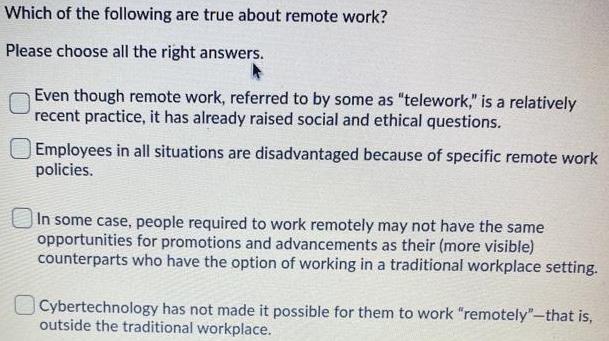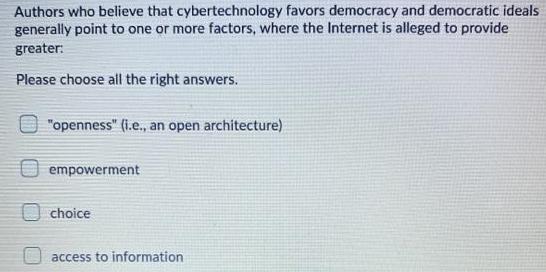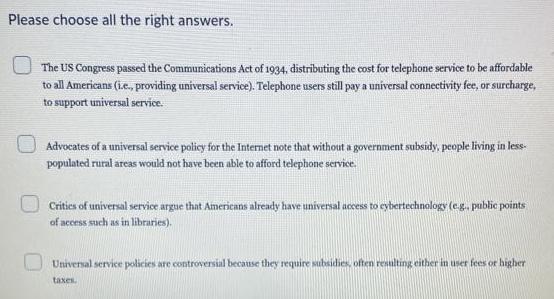Answered step by step
Verified Expert Solution
Question
1 Approved Answer
Which of the following are true about remote work? Please choose all the right answers. Even though remote work, referred to by some as




Which of the following are true about remote work? Please choose all the right answers. Even though remote work, referred to by some as "telework," is a relatively recent practice, it has already raised social and ethical questions. Employees in all situations are disadvantaged because of specific remote work policies. |In some case, people required to work remotely may not have the same opportunities for promotions and advancements as their (more visible) counterparts who have the option of working in a traditional workplace setting. O Cybertechnology has not made it possible for them to work "remotely"-that is, outside the traditional workplace. Which of the following are true about the Globalization and Outsourcing? Please choose all the right answers. Trade agreements have made possible a new global economy, encouraging greater competition between nations and greater efficiency for businesses. The economies of most nations have been severely impacted by the loss of jobs that has resulted from globalization. In the U.S., many manufacturing jobs, including traditional "blue-collar" jobs, as well as jobs in the service sector, have been exported "offshore." Outsourcing now also affects many highly-skilled "white collar" jobs, including jobs in the computing field. Some programming jobs traditionally held by employees in American companies are being "outsourced" to companies in India and China. Authors who believe that cybertechnology favors democracy and democratic ideals generally point to one or more factors, where the Internet is alleged to provide greater: Please choose all the right answers. "openness" (i.e., an open architecture) empowerment choice access to information Please choose all the right answers. The US Congress passed the Communications Act of 1934, distributing the cost for telephone service to be affordable to all Americans (i.e, providing universal service). Telephone users still pay a universal connectivity fee, or surcharge, to support universal service. Advocates of a universal service policy for the Intermet note that without a government subsidy, people living in less- populated rural areas would not have been able to afford telephone service. Crities of universal service argue that Americans already have universal access to cybertechnology (e.g, pablic points of access such as in libraries). Universal service policies are controversial because they require subsidies, often resulting either in user fees or higher taxes.
Step by Step Solution
There are 3 Steps involved in it
Step: 1
Question 3 Followings are true about remote work Even though remote work referred to by some as tele...
Get Instant Access to Expert-Tailored Solutions
See step-by-step solutions with expert insights and AI powered tools for academic success
Step: 2

Step: 3

Ace Your Homework with AI
Get the answers you need in no time with our AI-driven, step-by-step assistance
Get Started


